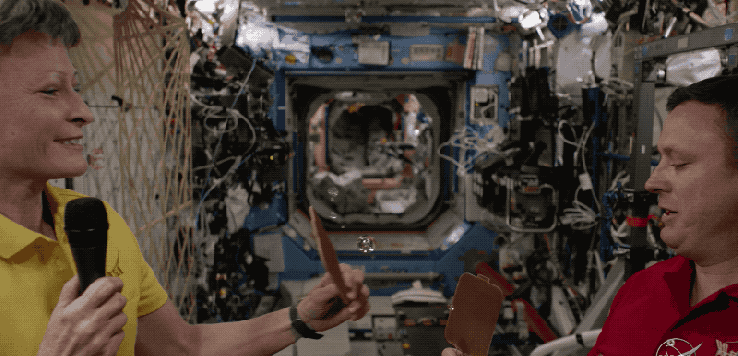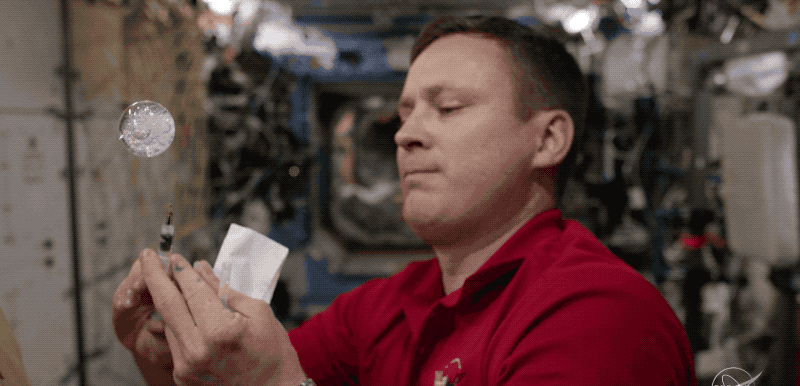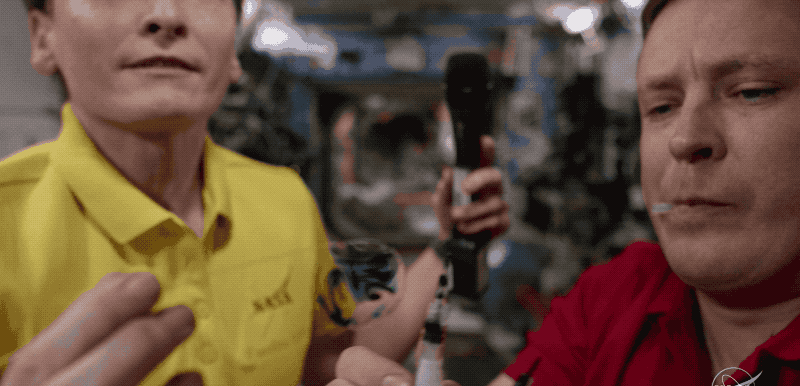
On April 26, NASA astronauts Peggy Whitson and Jack Fischer starred in the first 4K ultra-high-definition live stream broadcast from the International Space Station (ISS). The highly anticipated event, that occurred at 10:30 AM PDT (1:30 PM EDT), was part of a special show at the 2017 National Association of Broadcasters in Las Vegas to demonstrate the advanced technology and promote space science and filmmaking. Though the broadcast lasted just a few minutes, the astronauts impressed the ground audience with some fun experiments that looked stunning, thanks to the high-resolution imaging.
The first involved a ping pong game between the two scientists. However, given that this was the space version, the duo did not use an ordinary ball. Instead, Fischer created a water ball by pushing the liquid up through a straw. Thanks to the zero-gravity environment, the floating bubble stayed almost intact, enabling the astronauts to gently hit it back and forth with their makeshift paddles. Since errant water bubbles can cause damage to the space station’s delicate instruments, Fischer gulped it down as soon as the game was done.

The second experiment also involved a water ball, but this time the astronauts added some Alka-Seltzer. The ensuing small air bubbles were clearly visible to the audience even though the ISS rotates 220 miles above Earth. Red food coloring made the floating water ball seem even more vivid and lifelike. Though Fischer tried to catch it again with his mouth, the water ball appeared to elude him and the astronaut is later seen cleaning up the red mess with a sheepish smile on his face.
For their third and final demonstration, the scientists created a thin film of water on a ring similar to the one used to blow bubbles with and added blue and green food coloring. As the colors swirled around, Fischer carefully injected additional water, creating an Earth-colored bubble that magically floated inside the ring.

According to the astronauts, the 4K live-streaming capability will allow them to share detailed images of space experiments with their colleagues on Earth. Whitson believes the technology will become even more crucial as we get closer to sending humans to Mars. That’s because obtaining high resolution images of the Red Planet will enable researchers to study and prepare for the destination in advance.
Though this is the first time the researchers have live-streamed using 4K technology, it is not the first ultra-high-definition demonstration from space. In October 2015, American astronaut Scott Kelly released a video of a similar bubble experiment that was captured on film using the ISS’s then newly-acquired 4K video camera!
Resources: techchrunch.com,live.awsevents.com,blogs.nasa.gov